The story of how Ed Foster met his wife is a good one.
Or rather, how his mum met her.
Ed, the owner of The Rhynd in Fife says: “Lisa actually got a job here in 2018 as the manager of the event space and cafe.
“I was living in London at the time, so she was interviewed by my mum, which obviously, with the current state of affairs, is highly amusing.
“No one ever has a girlfriend or a wife that’s interviewed by their mum.”
Four years later, after “too much rum” at a staff member’s leaving party, they got together.
Today, they are married with a five-month-old baby and run The Rhynd – a hub of events, food and fitness near Leuchars – alongside Ed’s mum Clarinda.
“It’s funny,” Ed, 41, says. “You can spend your life surfing the world to try and find the right person.
“And actually, sometimes, they are right in front of you.”
Craigie Farm, where Ed and his older siblings were raised, has been owned by the Foster family for more than 100 years.
It was traditionally an arable farm with let cottages, forestry and a clay shooting centre.
Ed, who worked as a motorsport journalist in Milan and London for 15 years, returned to the farm when his father John became ill with Parkinson’s with Lewy bodies dementia.
And since then, it has undergone a huge transformation, with the opening of The Ryhnd gym, Rhynd cafe and Rhynd event space in the arable unit next door.
It was hoped that diversification would provide a stable income throughout the year.
“The farm is always notoriously difficult [to keep afloat], and we were keen to secure it for the future, because we weren’t putting any money aside,” Ed explains.
Navigating Covid and cost of living crisis as a family business
“So that’s part of the reason why we ended up doing the event space and cafe and the gym.
“They’re just all to try and help with cash flow during the summer, which is always very difficult with the farm.”
Of course, Covid happened shortly after Ed took over.
“Great time to do it,” he laughs. “Great time…
“But luckily we haven’t had a cost of living crisis since then as well!”
Ironically, it was the farm which saw the family business through the pandemic, with the food production industry considered essential.
Meanwhile, cafe staff were put on furlough and events were called off.
It was the cancellation of weddings that caused the biggest headache.
Ed says: “Lisa was trying to deal with all these brides and grooms pulling their hair out, understandably, not knowing when they could get married, if they could get married.
“We took the decision very early on to refund couples the full amount if they couldn’t find another date with us.
“That put an extra financial strain on because, whilst we hadn’t spent the money, it’s still difficult when you’re refunding people quite large amounts and you’ve got no money coming in.”
Despite the challenges along the way, the couple have always remained positive.
Their motto, Ed says, is “progress, not perfection”.
“And as long as we’re moving forward, and as long as things are improving then things are good – because no one’s ever perfect.”
And they are obviously doing something right.
The business, which employs 37 people, won Diversification of the Year at the British Farming Awards this year.
‘There’s so much I wish my dad could see’
Sadly, Ed’s dad John died in 2019.
Very ill for the last few years of his life, he never got to see The Rhynd as it is today.
“There’s loads of things that happen on the farm on a daily basis that I wish he could see,” Ed says.
“He never saw the cafe, really, or the event space in full swing.
“He never saw the gym and the archery and axe throwing facilities.
“And I know he would have loved giving the archery a go.”
Laughing, Ee recalls: “We used to take him down to the clay ground in his wheelchair, and he still hit every single clay that went over him.
“It was amazing.
“I remember looking at my brother and sister being like: ‘What have we got to do to beat this guy?’
“He’s in a wheelchair with Parkinson’s and he can still hit more clays than us!”
However, Ed’s mum Clarinda is still very much involved in the business.
The grandmother creates flower arrangements for The Rhynd Cafe every week and makes the jam and marmalade it sells.
Although the buck stops with Ed, he says that decisions are talked through with his mum and wife first.
The team of three enjoy lunch together almost every day.
“We talk through everything, or if someone’s not happy, or something’s not working, or we all talk about it,” Ed says.
“It’s like having a board of directors – but we actually get on!”
I wonder if it’s hard to switch off sometimes. Do the couple have a ‘no work talk’ rule on date night?
“We genuinely love what we do, and we really care about everything here,” Ed says.
“So chatting about it at dinner doesn’t feel like work.
“It’s just life, and it is a wonderful life.”
Family is uncontactable for one week a year
But that doesn’t mean they don’t need a breather sometimes.
Ed and Lisa enjoy a one-week getaway to the west coast of Scotland every autumn, where they allow themselves to be completely ‘out of office’.
Lisa, 34, says: “Everybody here in the team knows that we are not to be contacted unless there is an absolute disaster.
“And that’s our one week where we are switched off from everything at the farm, and it’s wonderful.”
Obviously, it’s early days (less than 200, in fact) but do they hope that daughter Olivia might take over The Rhynd one day?
“She’s got her first shift as a KP in the cafe next week, actually!” Ed quips, before saying quite seriously: “We would never force Olivia, or any of our future children, to take on the business, because it is all-consuming.
“And it is stressful. I have sleepless nights in the summer, when cash flow is difficult, and we’ve still got to pay everyone at the end of the month.
“I wouldn’t want to make someone do it, because if you make someone do something, they’ll never do it well.”
The future of The Rhynd
That being said, the future of The Rhynd – the future of his family – is something that is always on Ed’s mind.
“My father always used to say: ‘You never own Craigie.
“You are purely looking after it for the next generation, and whatever you do, just leave it in a better place than you found it.’
“I thought that was really nice advice about a family business.
“And that’s basically what we’re trying to do.”
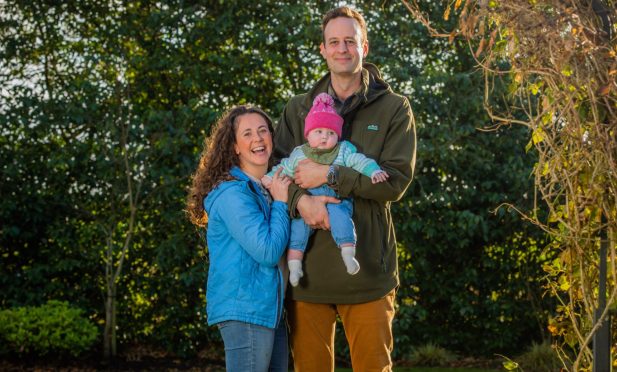
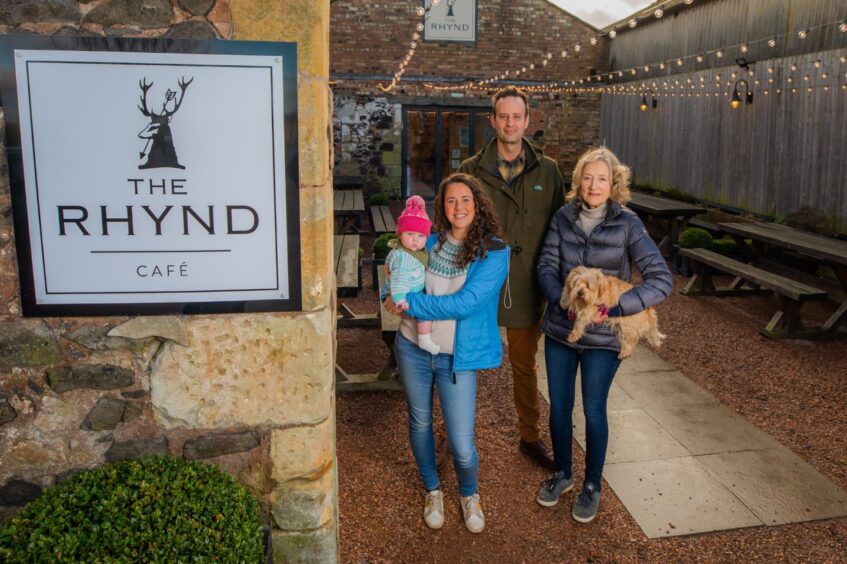
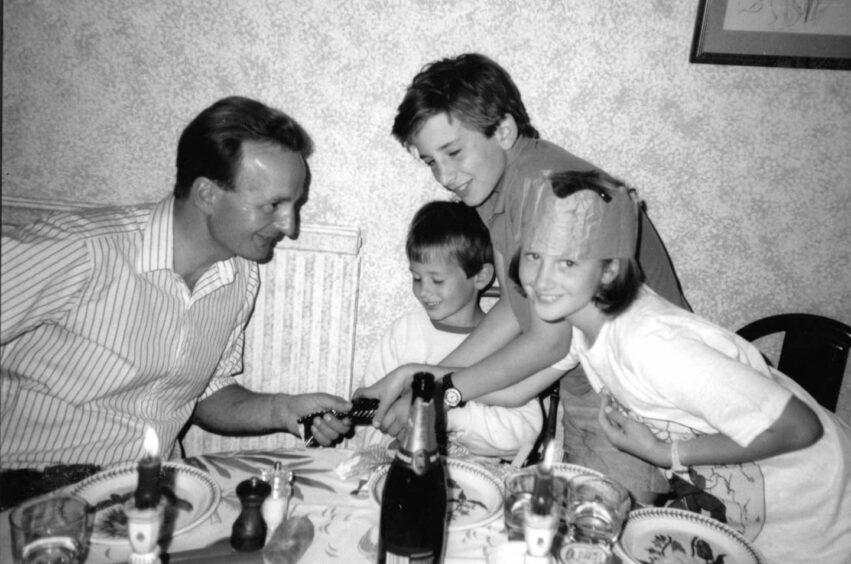
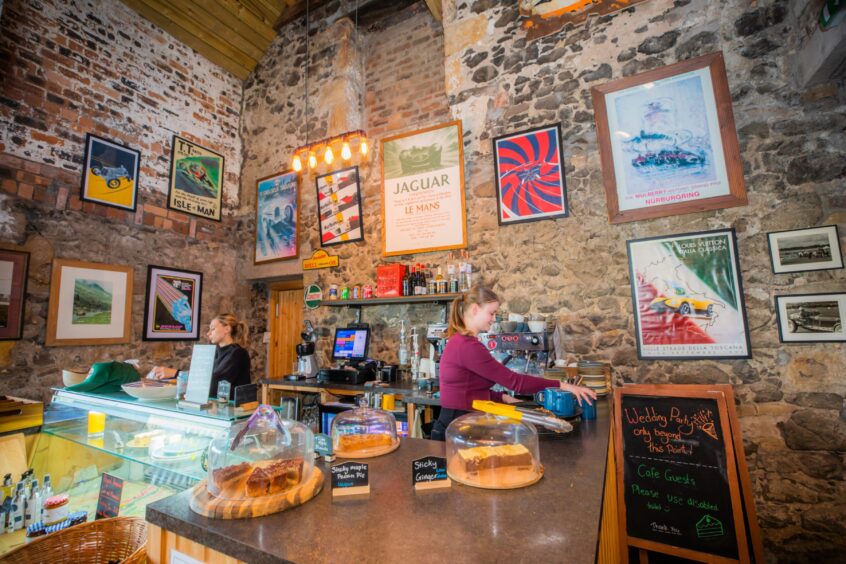
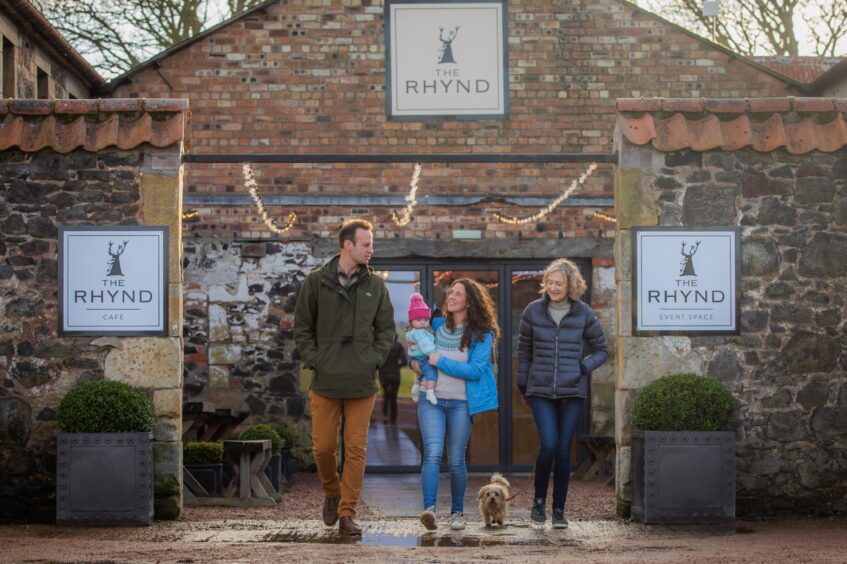
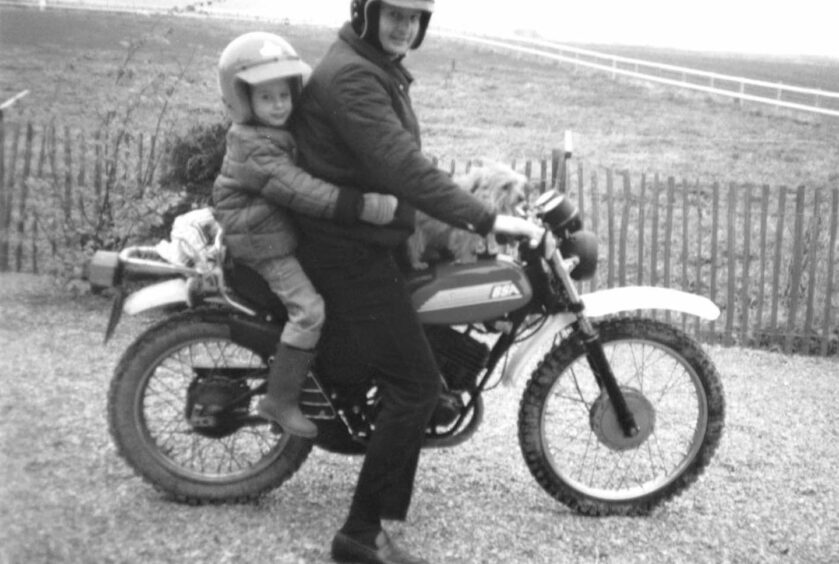
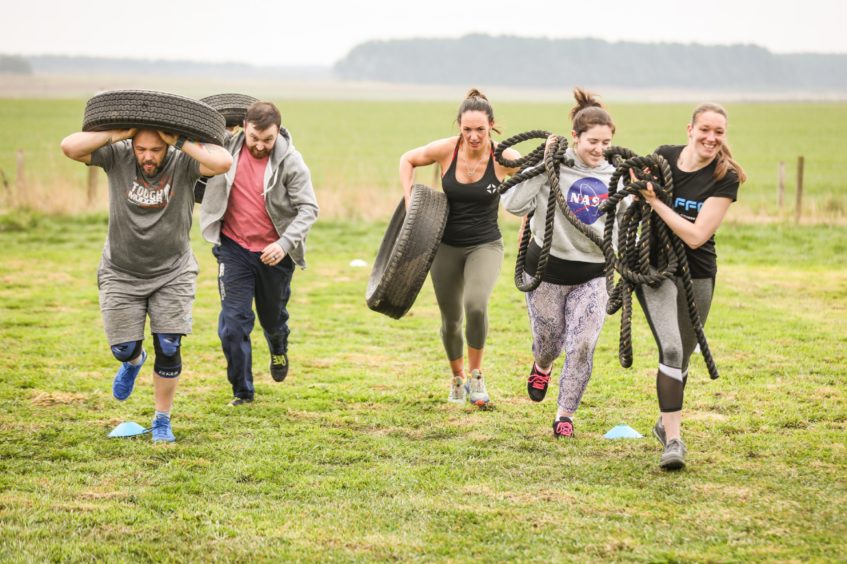
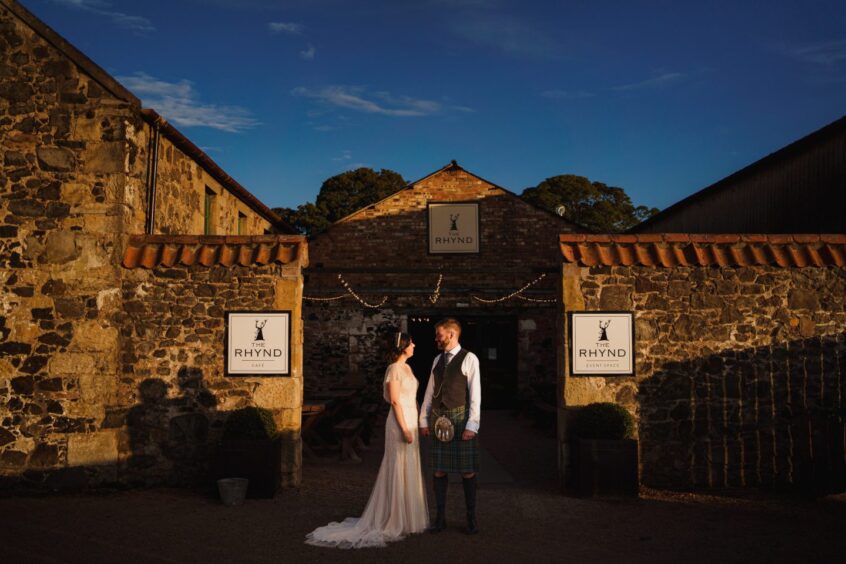
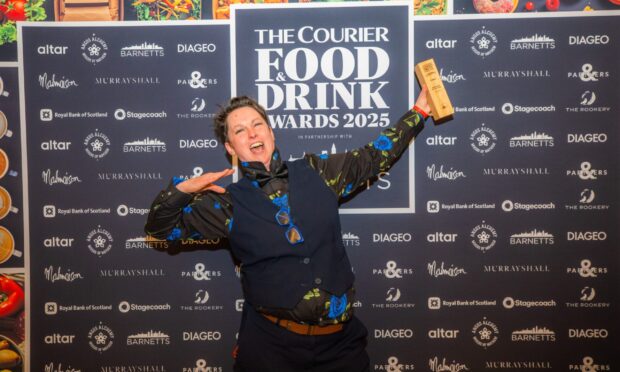

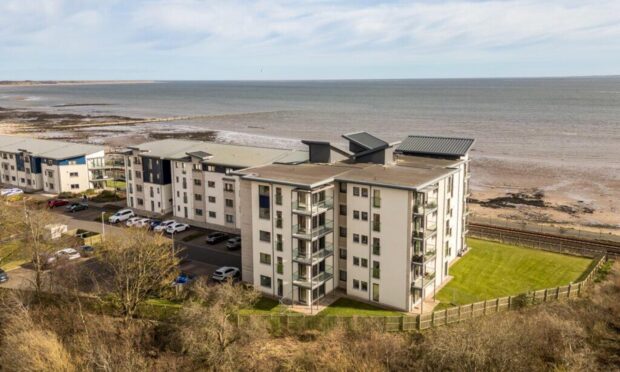
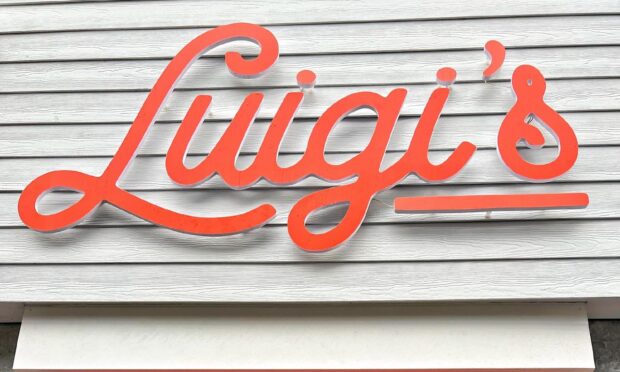

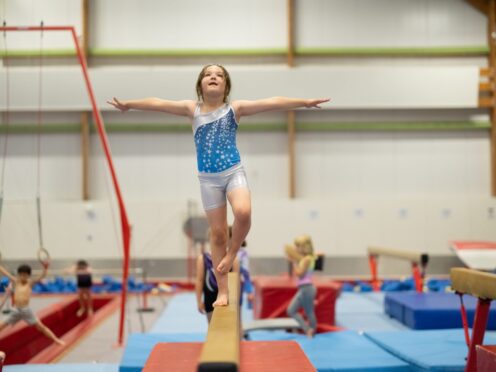
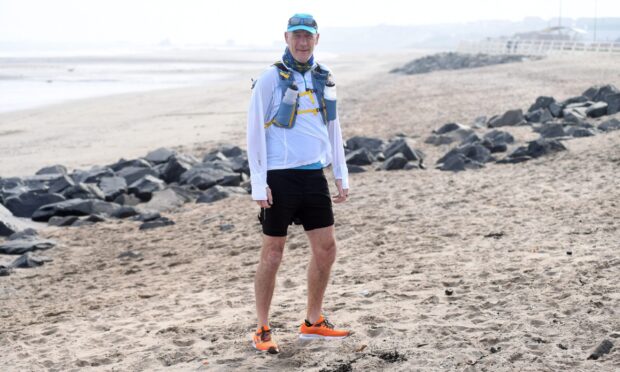
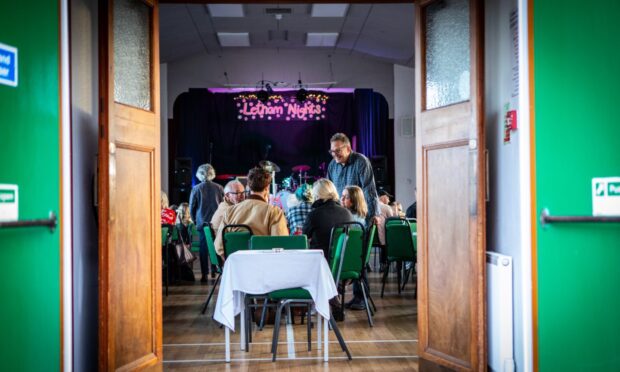
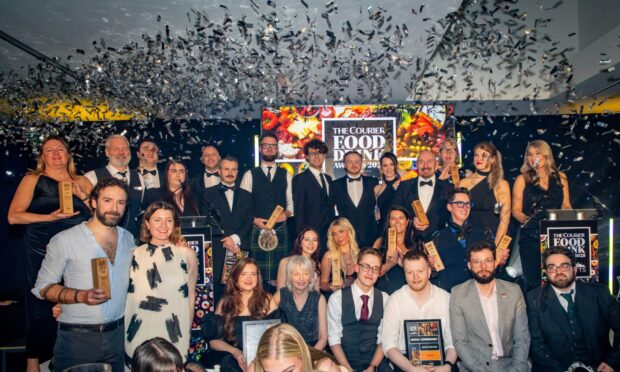
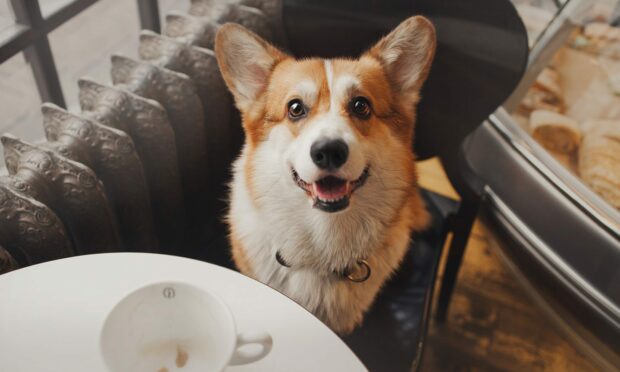
Conversation